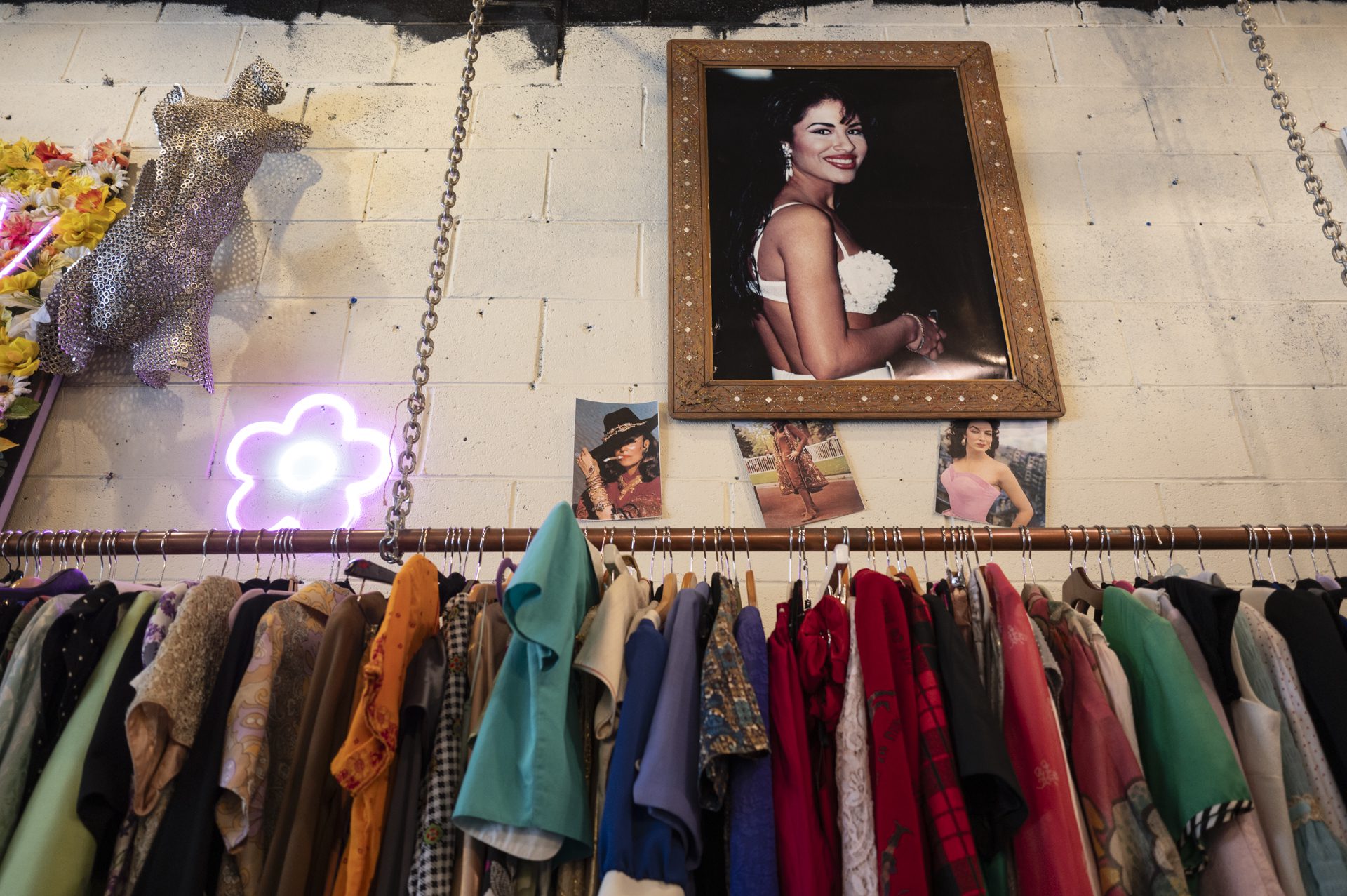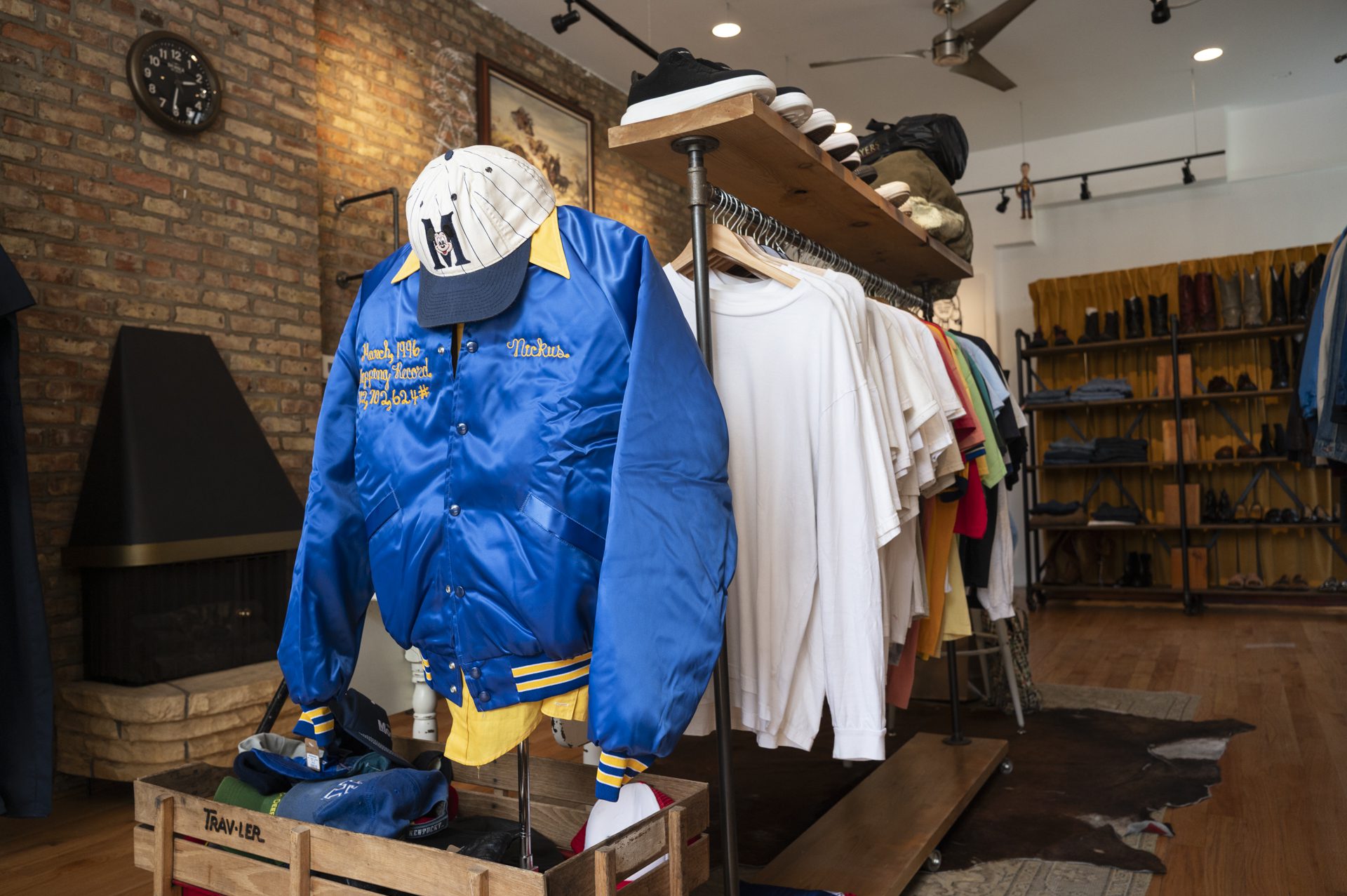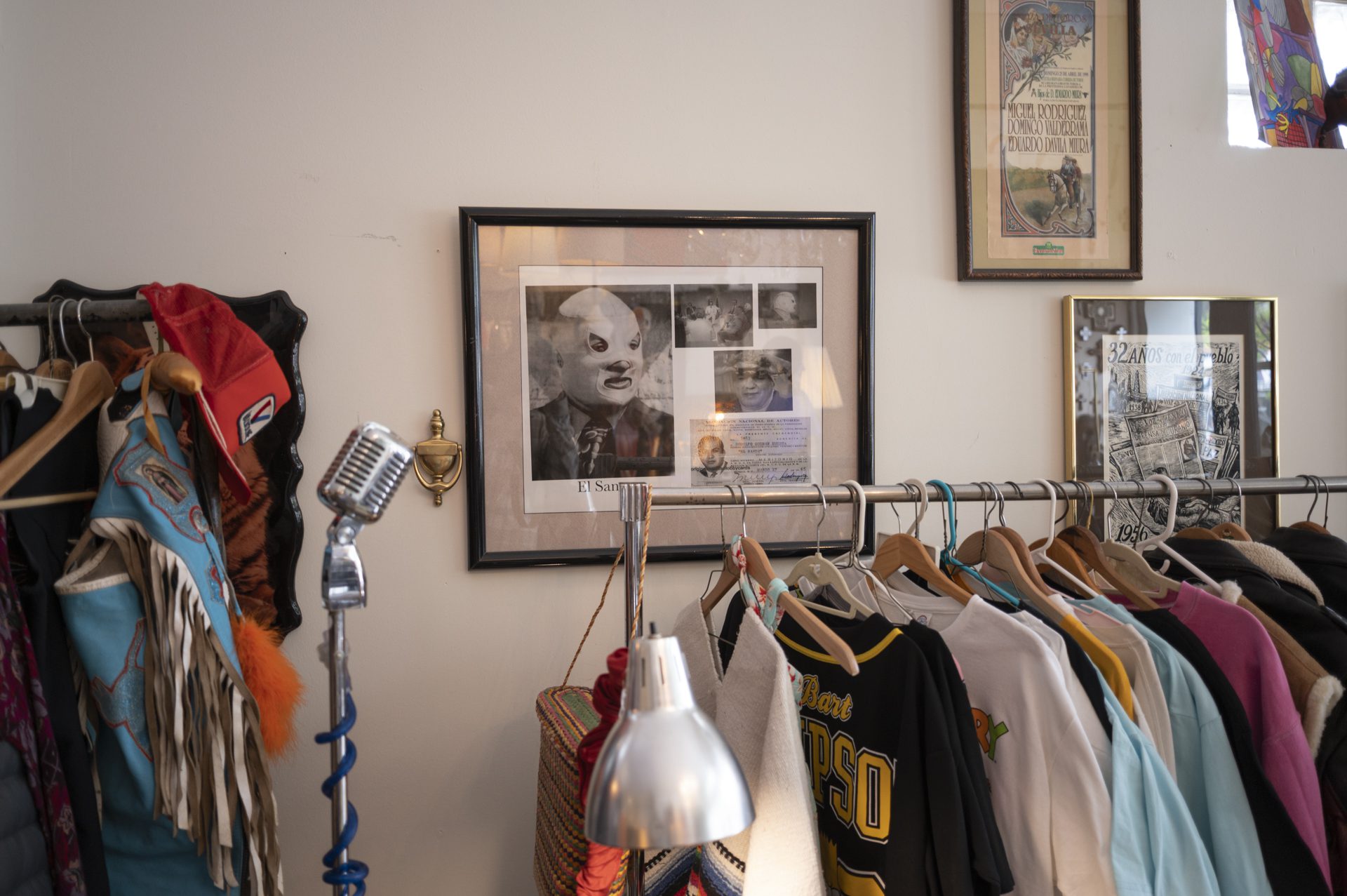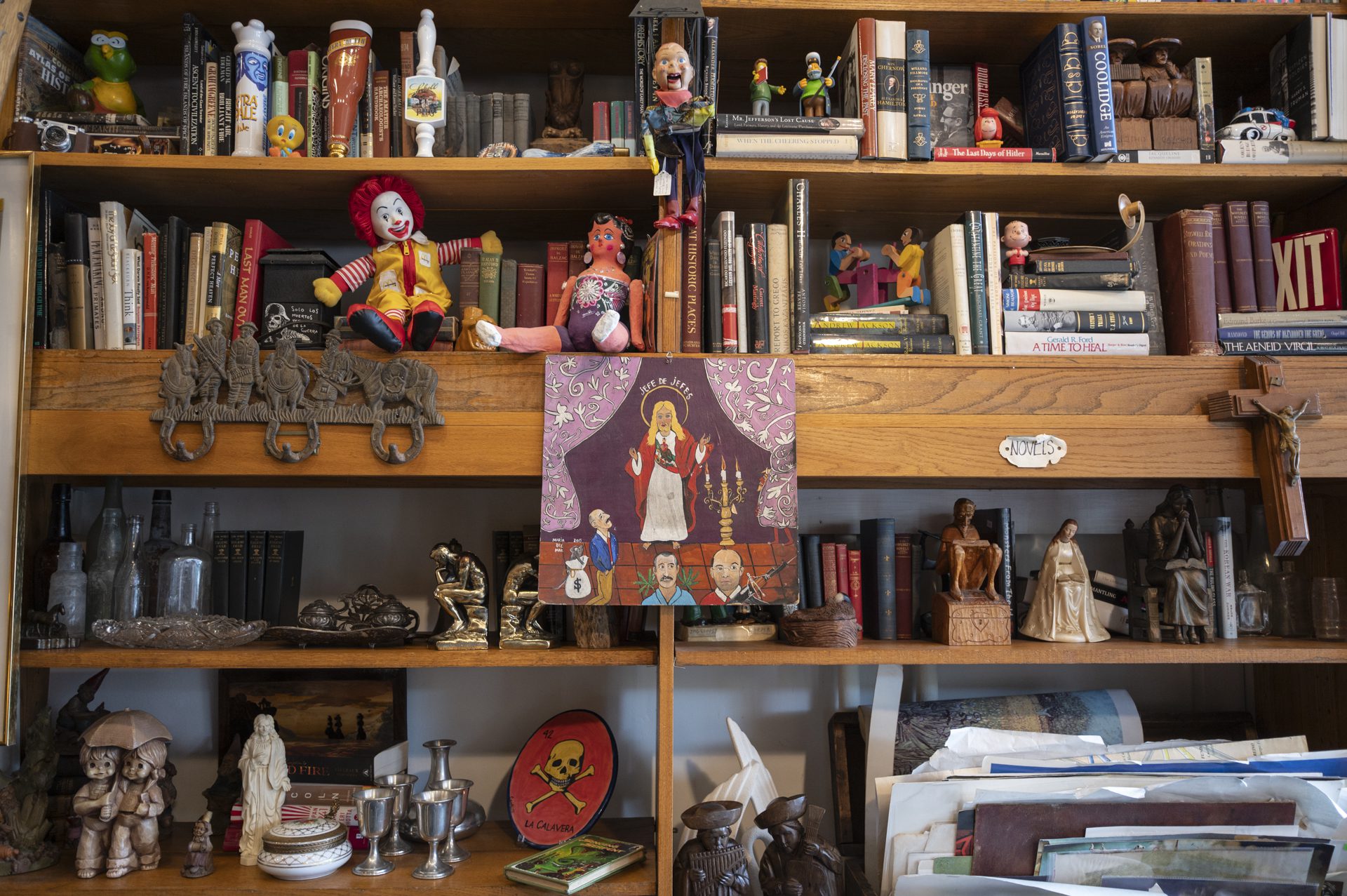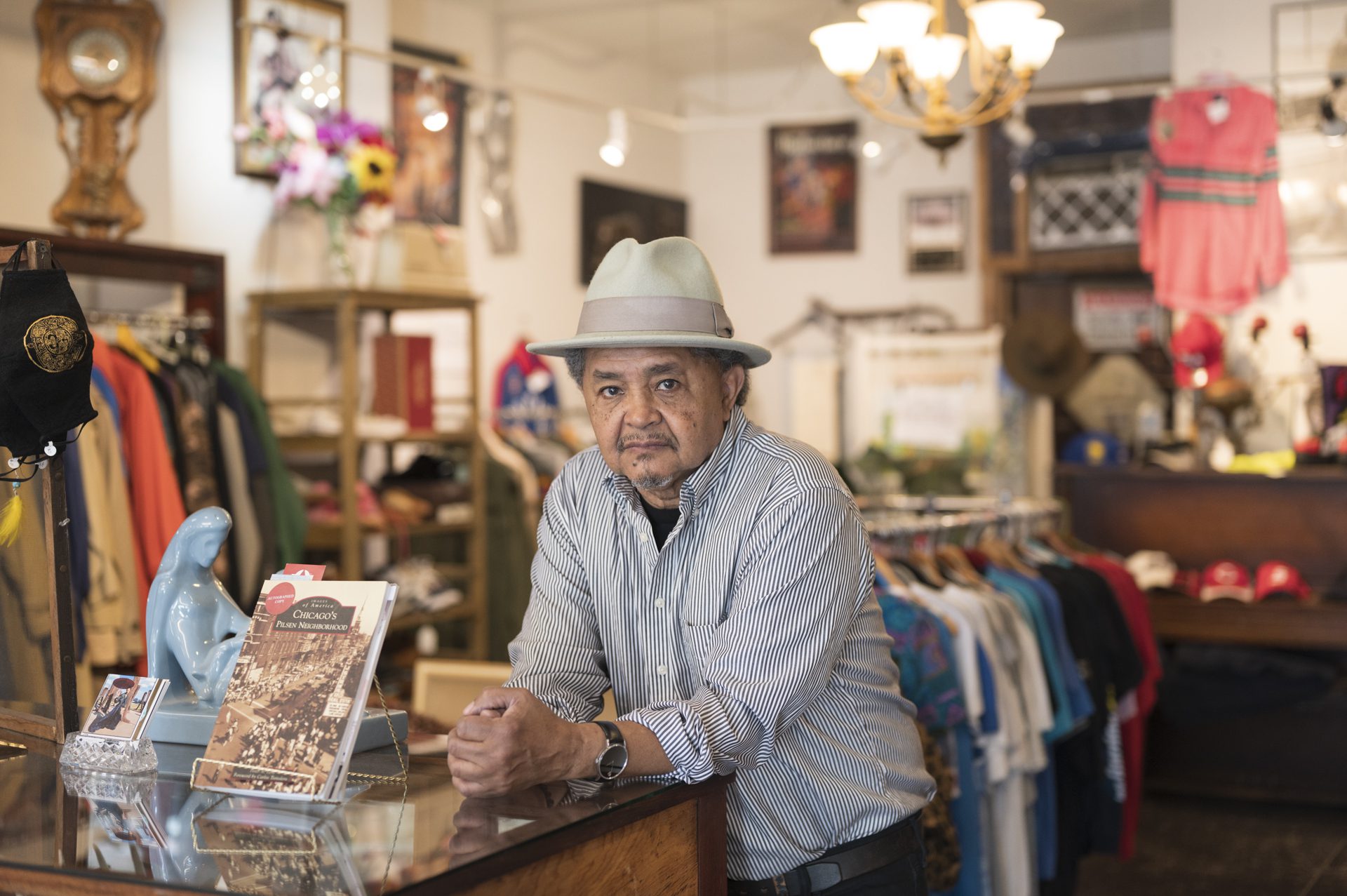 Max Herman/Borderless Magazine
Max Herman/Borderless MagazineVintage store owners hope tariffs on imported clothes and collectibles could boost sales in secondhand shops in neighborhoods like Pilsen.
After the Great Recession almost completely halted his custom furniture work, Paul Guizar decided to sell secondhand clothing at the front of his shop in Pilsen.
Fifteen years later, his store, Pilsen Vintage, attracts people from across Chicago and out of town, including tourists worldwide looking to visit one of Chicago’s most culturally rich neighborhoods and leave with a vintage piece.
The shop has eclectic thrifted and second-hand designer items: embroidered tops, designer skirts, graphic tees, leather handbags and statement rings.
News that puts power under the spotlight and communities at the center.
Sign up for our free newsletter and get updates twice a week.
Some decor and items reminiscent of the community’s Mexican culture are sprinkled throughout, including memorabilia of late Mexican singer Paquita La Del Barrio and Mexican-American singer Selena Quintanilla.
Pilsen Vintage sits along 18th Street, a historic port of entry for Mexican immigrant families and a destination for vintage shopping in Chicago. The bustling and colorful street is filled with art galleries, restaurants and bars, with at least 10 second-hand shops in between.
Over the last few months, Donald Trump has issued widespread tariffs on imported goods, impacting small shops and corporate businesses alike. Some business owners and ethnic grocery stores in the city have had to pass price hikes on to customers. Amid the unpredictable federal policies, economists and second-hand shop owners say the rising cost of new goods could drive consumers to their businesses.
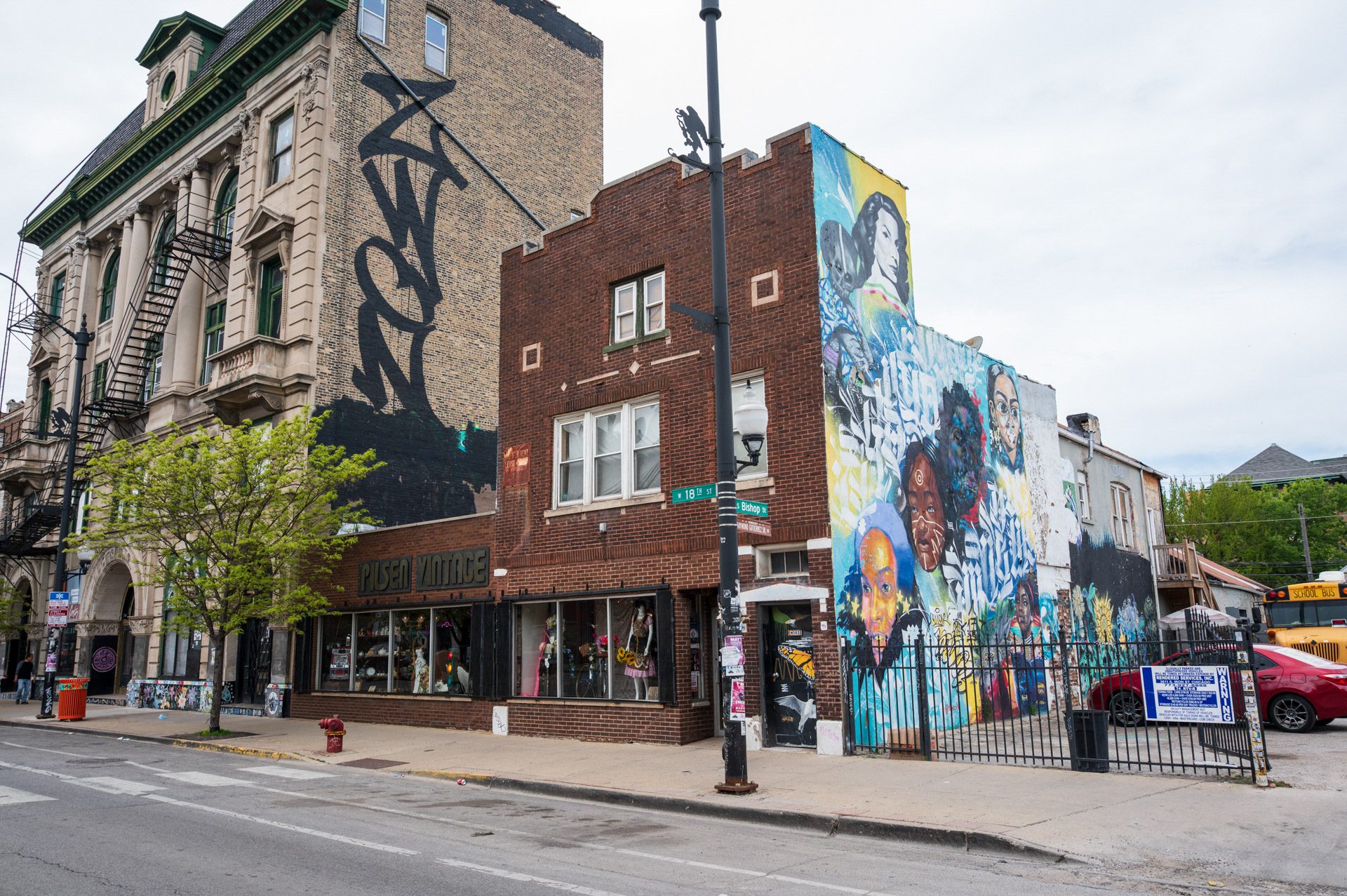
“We still survive because it’s a community store,” said Guizar. “We also enjoy a lot of people from out of town here. We’re grateful for that.”
Like many other vintage stores, Guizar sells mostly items curated from within the U.S., although many might have been manufactured and imported from different countries years ago.
Almost all new clothes sold in the U.S. are imported—mainly from China—and are now facing tariffs of over 30%. This means new shoes and clothes could get a lot pricier.
Since February, Trump has increased tariffs on Chinese imports to about 145% amid an escalating trade war. Trump and President Xi Jinping agreed to lower tariff rates in May, but tensions remain between the two countries.
Some second-hand store owners in Chicago, like Guizar, say they hope this results in more shoppers turning to the resale market to save a few dollars.
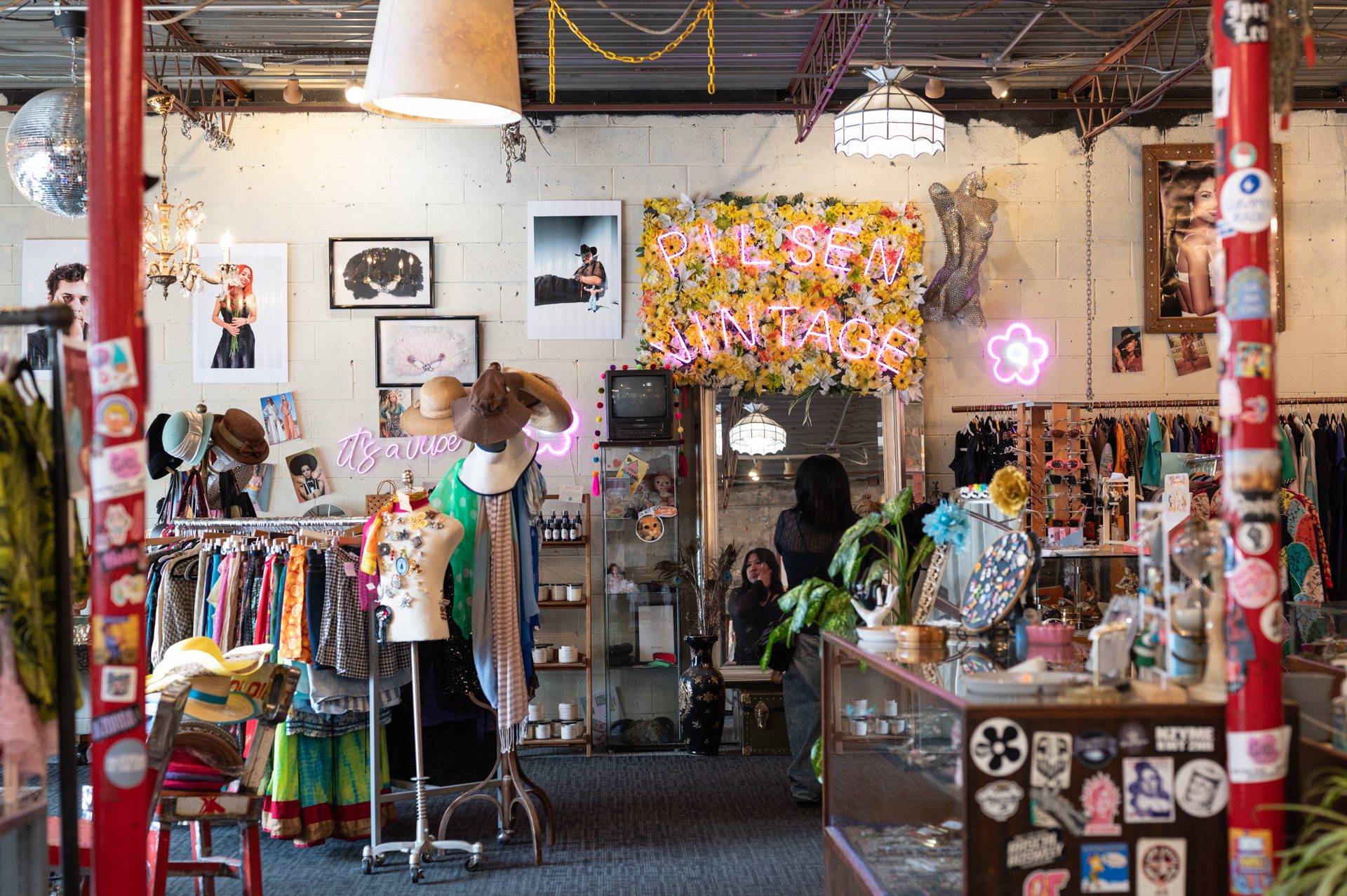
However, there is still uncertainty about how his business will be affected, and he questions whether the tariffs will lead to more competition in the second-hand market and raised prices.
“I am a little concerned, even though most of our products are vintage and they already existed for many years,” said Guizar. “Nobody knows [what’s next].”
The Rise of Second-Hand Stores
Secondhand clothing has increased in popularity due to the quality of the products and concern for the environment, according to a retail consumer 2022 report. Nearly 70% of consumers surveyed said they are willing to pay more for sustainable products, increasing over 40% from two years prior.
However, cost is still a significant driver for many consumers to shop resale, and an economic slowdown could grow consumers’ interest.
Local second-hand stores face stiff competition from fast-fashion online retailers that import from China. These retailers have exploded in the last few years and attract cost-conscious shoppers, but according to a BBC report, they struggle to make a profit due to an oversupply of ultra-cheap clothing and the cost of processing used items.
Industry experts say tariff-induced price hikes on imported goods could drive more shoppers to buy from stores selling secondhand items, like Pilsen Vintage and Counterfit, rather than fast-fashion brands that manufacture their clothing in China, the Associated Press reported.
“Hopefully, business will get better for us because people won’t want to pay all those excessive fees,” said Desaray Herrera, co-owner of Counterfit, another second-hand shop in Pilsen.
Herrera’s store offers both affordable thrifted items and vintage pieces. She believes tariffs on China will make thrift stores’ pricing more competitive.
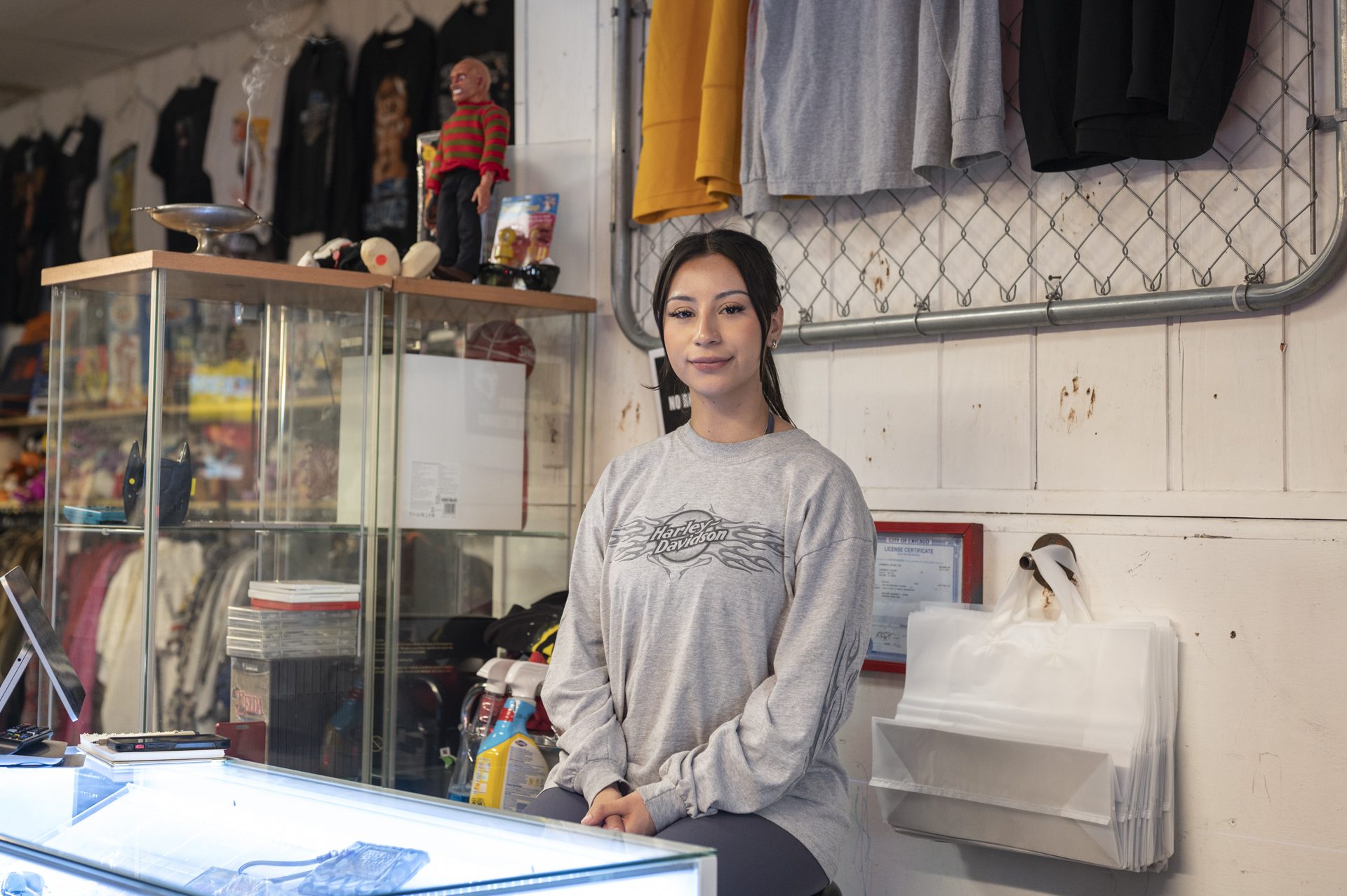
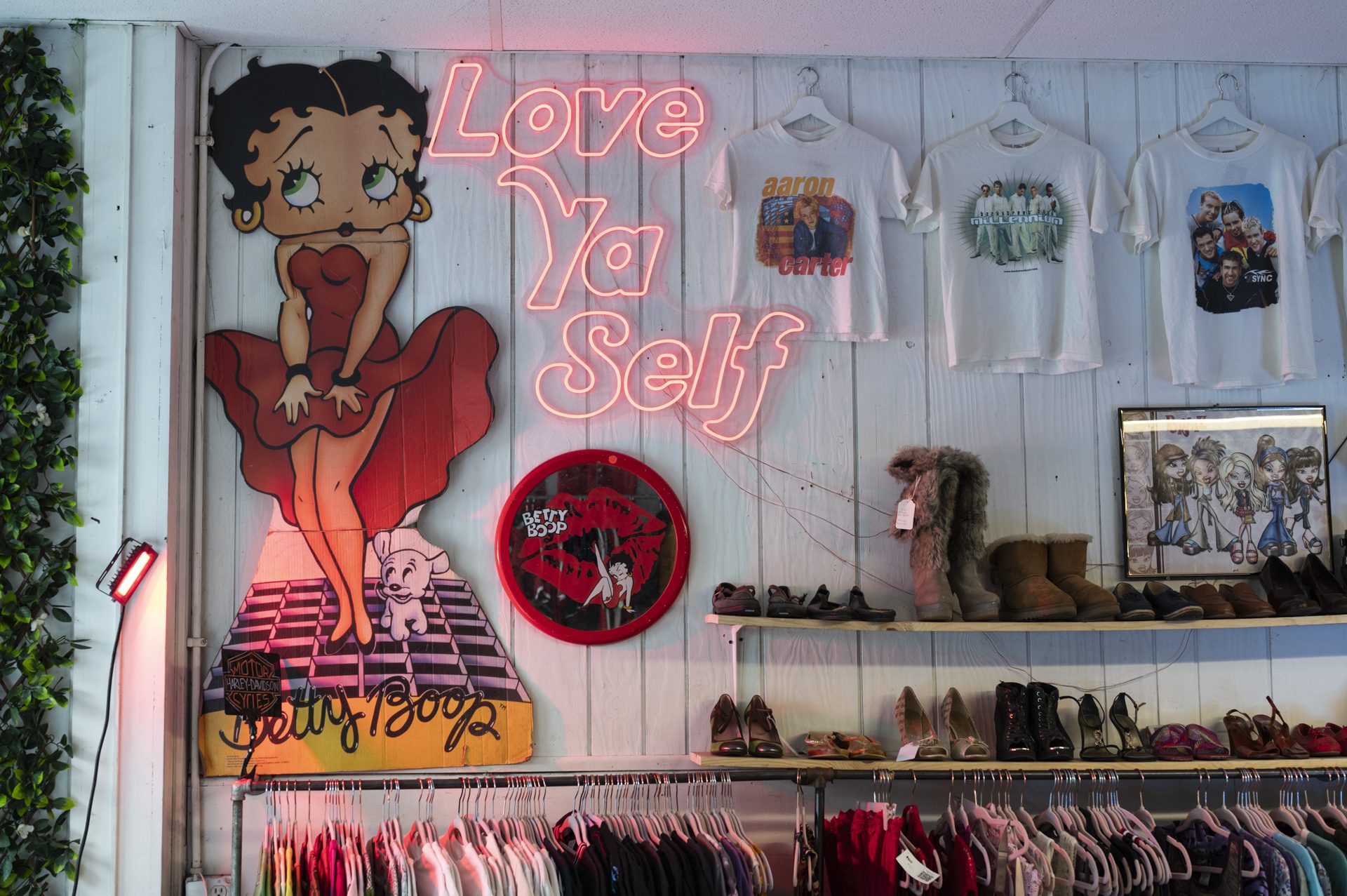
“We’re hoping to see that more people stop by and start shopping locally with us,” said Herrera.
The Cost of Tariffs
Despite second-hand shopping’s rising popularity and fewer manufacturing competitors, experts said tariffs could still impact this market.
“Second-hand stores are stores that, in some sense, should benefit, I would think, from the tariffs,” said Brian Phelan, associate professor of economics at DePaul University.
Phelan warned that an economic slowdown tends to cause consumers to cut back on spending on anything that isn’t an absolute necessity.
This is a concern that Francisco Orosco faces while operating his two consignment shops on Pilsen’s 18th Street, Cementerio Del Arte and El Anticuario, where he sells statement pieces of clothing, furniture and home collectables inspired by his native country, Mexico.
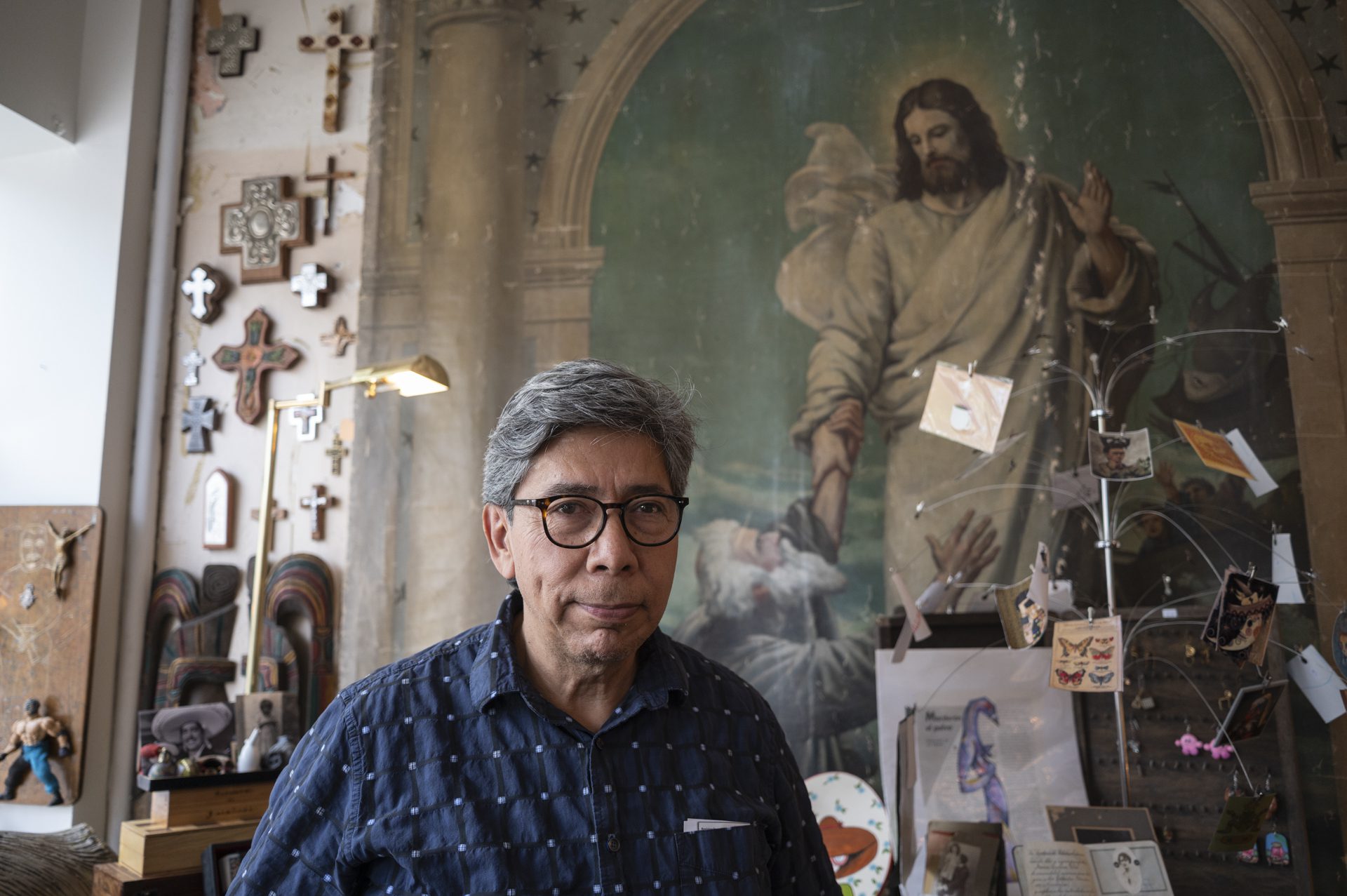
Despite not selling imported goods, he worries that tariffs on imported items could cause people to reduce their spending on non-essential goods, as people fear a recession. Consumer spending has already slowed down since Trump’s tariffs were announced.
Over the last four months, Orozco said he has made half of what he usually makes in sales this time of year. He believes this is due to recent slower foot traffic in Pilsen and consumers tightening budgets.
He fears having to close his stores if this dip in sales continues.
“It’s not like other years,” said Orozco. “It’s different now. People had more money to spend. “They were more secure. They were more confident in buying things.”
He believes that tariffs won’t affect his customer base, who have followed his business for years online and in pop-ups before opening up his storefront on 18th Street four months ago.
“What I’ve learned about retail, or just clothes in general, is that [vintage] is a unique niche,” he said. “You can never pinpoint what’s going to affect the business […] You never know what your customer is going to be like at the end of the day.”
Aydali Campa is a Report for America corps member and covers environmental justice and immigrant communities for Borderless Magazine. Send her an email at [email protected].
